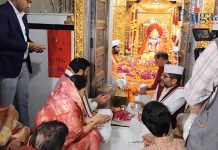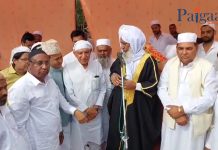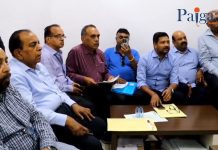National Conference (NC) party Chairman Farooq Abdullah on Wednesday announced that it will not participate in the Panchayat elections unless the conflict regarding Article 35 A is resolved. NC chief Abdullah said that until the Centre and the state government cleared its stand with regard to Article 35 A and took concrete steps for the protection of the same inside the court.
The Supreme Court (SC) had earlier adjourned the hearing on a number of petitions challenging the constitutional validity of Article 35 A to next year for the month of January, that gives special rights and privileges to natives of J&K. The apex court took deferred the hearing after taking cognisance of the law and order problem in the state and also the impending eight-phased local body elections which are to be held. A bench headed by Chief Justice Dipak Misra was informed of the adjournment in the case by Attorney General KK Venugopal and Additional Solicitor General Tushar Mehta, representing the Centre and Jammu and Kashmir government respectively.
The same day, prior to SC adjourning the pleas on Article 35 A, a delegation of the Jammu and Kashmir Pradesh Congress Committee (JKPCC) called on Governor SP Malik and urged him to utilise all resources to protect Article 35 A of the Constitution which is facing a legal challenge in the apex court. The delegation had met the governor at the Raj Bhavan and held discussions on the overall socio-political and the prevailing security scenario in the state. JKPCC President GA Mir had then addressed various issues of public importance.
Article 35 A, which was incorporated in the Constitution by a 1954 Presidential Order, accords special rights and privileges to the citizens of Jammu and Kashmir and bars people from outside the state from acquiring any immovable property in the state. It also denies property rights to a woman who marries a person from outside the state. The provision, which leads to such women from the state forfeiting their right over property, also applies to their heirs.

















































